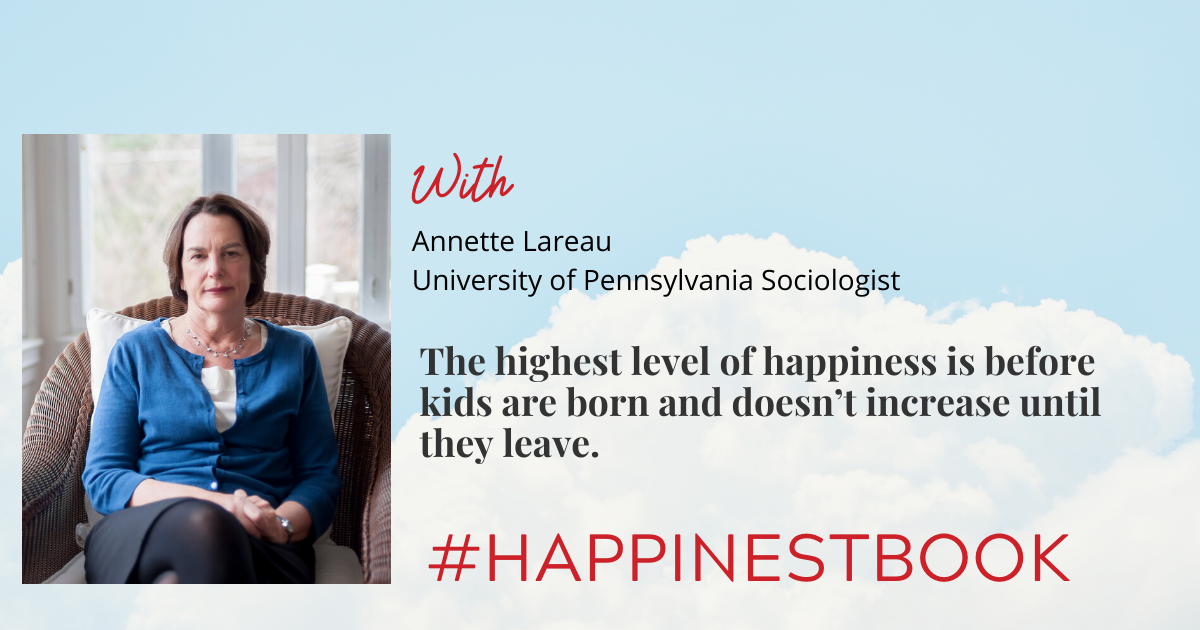Parenthood is about letting go—giving your kids roots and wings and allowing them to Fly off into The World.
Annette Lareau is a sociology professor at the University of Pennsylvania and author of Unequal Childhoods: Class, Race, and Family Life. Her ideas are so interesting that Malcolm Gladwell discussed them in his book Outliers.
Annette studies family life and is interested in how the social position of children and parents affects their life experiences and how they raise their kids.
She is currently embarked on a cool new project: She got a grant from the National Science Foundation to look at the blessings and challenges of families with high net worth.
Annette has a golden academic resume: She’s been president of the American sociological association and got her PhD from Berkeley.
Annette says many empty nesters still place friend relationships on the back burner, much as they did in the years of intensive child-rearing. Watch out because a shortage of friendships can present problems once the kids leave!
Did you like this episode? Please share it with the social media buttons below. I’d love it if you would rate, review, and subscribe to HappiNest on Apple Podcast, Spotify, Stitcher or Google Play.
What you’ll learn about in this episode:
- Raising kids is hard on a marriage. The highest level of happiness is before kids are born and it doesn’t increase until they leave home.
- Many middle-class parents are decimating their savings to fund their young adult kids. For many Americans, who will live longer than their parents, finances will be thin in retirement because they are giving so much to their young adults. Make sure you don’t feel resentful about how much you support your kids financially as resentment is toxic to relationships.
- Family life is a moving target, a fluid situation: Be flexible and remember that your young adult is no longer eight years old!
- Parents raise their kids differently based on their social location, education and jobs. Middle- and upper-class people tend to enroll their kids in many organized activities and strive to develop their children’s interests. They engage in “Concerted Cultivation,” a gardening analogy. Working class parents raise their kids through the “Accomplishment of Natural Growth,” as if they are raising wild flowers.
- Middle-class kids are more dependent on their parents once they go to college. Their parents have taught them that they are special and their opinions matter. They are accustomed to dominating the conservation at the dinner table. They tend to have a sense of entitlement.
- Working-class and poor kids tend to be better at basic life skills and more independent. As they grow up, they spend more time with relatives. First-generation college students are often astounded at how much help their more affluent peers get from parents, such as booking tickets or editing papers. They are also shocked at how much help their more affluent classmates require from parents in handling basic life skills.
- Middle- and Upper-class kids tend to have an edge in getting jobs in the elite work world. Their parents use their vast networks to help them get jobs.
- Being a parent is about letting go—giving your kids roots and wings and allowing them to be independent and fly off into the world.





